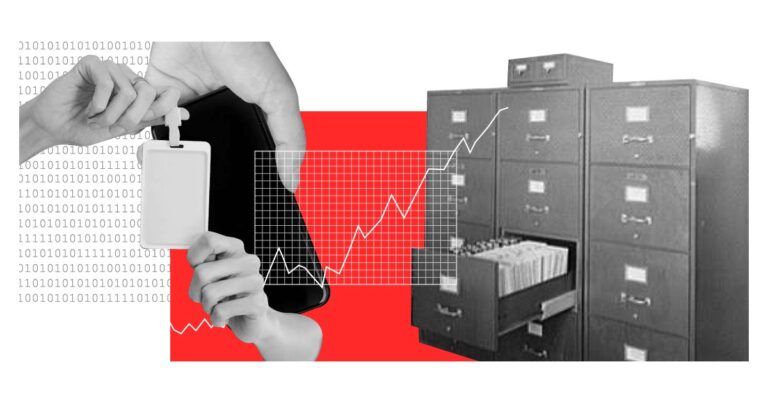The pandemic exposed the weaknesses in Indonesia’s service delivery system. There is a pressing need to adopt digital technology and modernize the public sector for a more inclusive and resilient society. A new World Bank report explores how this can be achieved.
During the COVID-19 pandemic, governments worldwide sought to harness digital technology to maintain service delivery and provide social assistance. While Indonesia has made strides on this front, it also faced significant obstacles. For example, obtaining reliable data on the state of the pandemic was both challenging and time intensive as existing government information systems were, and are still, fragmented, and outdated.
The Indonesian government announced several programs aimed at softening the financial shocks from the pandemic. However, the roll-out was often delayed due to difficulties in identifying and verifying target beneficiaries. It illustrated how poor tech adoption and outdated business processes can pose challenges to policy deliberation, design, delivery, and monitoring and evaluation. Therefore, there is now a pressing need to develop a robust digital environment and leverage it for a more inclusive and resilient society.
The World Bank’s Beyond Unicorn report proposes three recommendations for this: (1) develop a national digital identification (digital ID) framework; (2) transition away from e-government towards GovTech; and (3) embrace a whole-of-government approach for data-management policy.
Let’s take a look at each of these:
1. Develop a National Digital ID framework
Digital ID systems allow people to prove their identity remotely, using trusted identity data and a trusted verification mechanism. This is important for inclusion; because accessing public (as well as private sector) services often requires people to prove their identity. Digital ID systems also enable people to confidently participate in the digital economy because they will facilitate trusted online transactions and e-signatures. For the same reasons, a digital ID can also reduce transaction costs and fraud for government agencies and firms, such as for social assistance payments. Singapore offers a useful example for a national digital ID system.
Indonesia currently lacks an official digital ID system, however. The good news is that the existing population and civil registration system managed by the Ministry of Home Affairs (MoHA) is a strong basis for launching a digital ID, but there is also a need to improve the efficiency and complete the coverage of these existing systems as well. A digital ID pilot was recently launched by MoHA.
As Indonesia proceeds down this path, it is important to provide safeguards and accountability for the collection, use, and sharing of personal data, as well as formalize the rights of the people whose data is being collected and stored. Indonesia recently passed its long-awaited personal data protection law. However, work remains to be done in building citizen trust, given the core function of personal data in the digital ID system, the digital economy, and public sector. The ten Principles on Identification for Sustainable Development provide a useful guiding framework.
2. Towards GovTech, Away from e-Gov
In the past decade, Indonesia has taken concrete steps towards e-government, for example by establishing e-filing services and enabling online payments for motor vehicle taxes. Several ministries have launched ambitious public digital initiatives. This has resulted in a plethora of digital apps. Indonesia’s Ministry of Communications and Informatics (KOMINFO) estimates that there are 27,400 government applications, which raises concerns about coordination and efficiency.
Figure 1 illustrates the evolution of public sector digital transformation. E-Government is Indonesia’s first initiative to leverage ICT to improve public service delivery; it currently tends to focus on specific programs, resulting in progress that is siloed. GovTech is the latest generation of digital transformation; it emphasizes universal accessibility and a whole-of-government approach, thus deepening the citizen-government relationship and building the enablers to drive the digital transformation agenda.
Figure 1: GovTech is the latest iteration in the digital transformation of the public sector
Source: World Bank; extending the OECD’s presentation of digital transformation in Digital Government, 2019
An important step towards GovTech is to develop a comprehensive national digital transformation agenda and to place a central government authority in the driving seat to consolidate the needed political and bureaucratic support. This also means adopting a whole-of-government approach to digital transformation, which is coordinated and spearheaded by an agency with multi-ministry oversight.
3. A Whole-of-Government Approach for Data-Management Policy
This is key to any digital transformation agenda. a whole-of-government approach means eliminating fragmented data management and addressing the lack of cross-sectoral data sharing. The availability of reliable data varies widely across government departments and the lack of data standards and interoperability obstruct overall effective government.
Encouragingly, Indonesia has One Data regulations that address the key elements of data management. However, its implementation is still in its preliminary stages. In practice, Indonesia does not yet have an effective means to coordinate the execution of these regulations, few agencies have appointed their One Data trusties, the bulk of government data is not standardized, and platforms remain interoperable (Islami, 2021). Seeing through the regulation’s implementation will require leadership, in the form of developing of subsidiary regulations, mobilizing support to implement the policy in priority sectors, appointing data stewards for priority sectors, and so on.
Indonesia’s structural constraints to development persist, even in the context of harnessing technology for the poor. Technology and public sector modernization are complementary to addressing these development challenges, not replacements. In paving the path towards increased effectiveness, the government needs to ask: how can this ensure a more resilient and inclusive Indonesia?
This blog post is part of a series discussing the digital divide in the context of broadband internet access, mobile internet access, and digital economy relying on results of the World Bank’s Beyond Unicorn report.

